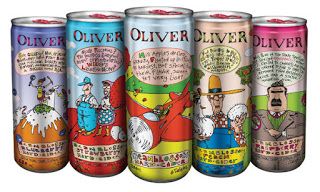The USPTO refused to register the mark BEAN BLOSSOM for "coffee, but not including alcoholic beverages," finding a likelihood of confusion with the registered mark BEANBLOSSOM for "hard cider." Applicant Cooper Moon argued that the space in its mark creates a different cadence from the cited mark, that the products differ in nature (one being a depressant, the other a stimulant), and that pairs of third-party registrations for marks covering coffee and beer show that in this field confusion between identical marks is unlikely. How do you think this came out? In re Cooper Moon Coffee LLC, Serial No. 88064160 (September 29, 2020) {not precedential] (Opinion by Judge Elizabeth A. Dunn].

The Marks: As to the marks, the Board rejected applicant's "cadence" argument, Both marks are comprised of ordinary words with a recognizable pronunciation, and applicant offers no explanation why they would be pronounced differently." Moreover, the cited mark is in standard characters and could be displayed as BeanBlossom.
Likewise, the Board rejected the argument that the marks have different connotations. According to applicant, "Registrant's Mark for BEANBLOSSUM (sic) primarily refers to geographic landmarks and areas that are proximate to the owner's facilities." The Board pointed out that collateral attacks on a cited registration are not allowed.
The Board found that BEANBLOSSOM is a strong mark entitled to a normal scope of protection. It concluded that the marks are "essentially identical."
The Goods: Because the marks are essentially identical, a lesser degree of similarity between the goods is necessary to support a finding of likelihood of confusion: there needs to be only a "viable relationship between the goods." The Board acknowledged the differences between coffee and hard cider.
More specifically, we note that hard cider is an alcoholic beverage, that alcoholic beverages include ethanol, one of the world's most widely used drugs, and acts as a depressant; while coffee has high concentrations of caffeine, which is the world's most widely consumed psychoactive drug, and acts as a stimulant. *** In comparison to all beverages, many of which do not include drugs, we find the fact that hard cider and coffee are beverages which include drugs creates a relationship between them which supports a finding of likelihood of confusion.
Examining Attorney Dezmona J. Mizelle-Howard submitted four third-party registrations that cover both coffee or coffee-related beverages and hard cider. Articles from third-party websites showed that coffee may be a component of hard cider. As to applicant's third-party registrations, they concerned coffee and beer, not coffee and hard cider. The record included evidence that hard cider and coffee "overlap in appealing to Millennial consumers, to those interested in locally-sourced beverages or the environmental impact of beverages."
In view of the evidence that hard cider and coffee both include drugs and are best consumed by adults, that hard cider can include coffee and is registered under the same mark as coffee, that a segment of consumers for both products focus their purchasing decisions on locally-sourced beverages or the environmental impact of beverages, and because they share overlapping channels of trade and consumers, we find that these DuPont factors also weigh in favor of finding a likelihood of confusion.
The Board concluded that confusion is likely, and so it affirmed the refusal to register.
Read comments and post your comment here.
The content of this article is intended to provide a general guide to the subject matter. Specialist advice should be sought about your specific circumstances.
